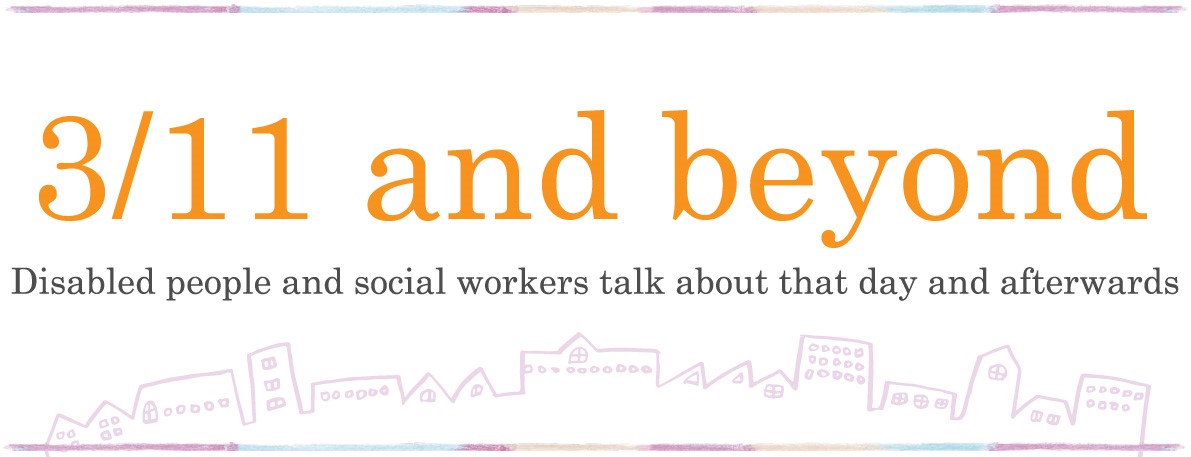Independence
Release from the shelter
Did you release your trainees starting with the ones whose families you could contact?
That’s right. Some were picked up by their families, and we took others in the workshop car.
Ten days later, everyone was gone
Our number of trainees staying in the shelter every day decreased, until finally there was just one person left. Because of various circumstances, this person was doing her best to live on her own in the region. Her apartment was half destroyed, and because she was sick and disabled, we wanted to make sure she was able to return home and had the necessary support before leaving the shelter.
During our ten days living at the shelter, we worked with her to make sure she could go home with peace of mind. It wasn’t perfect, but things fell into place ten days after the disaster.
Afterwards, she would have to live by her own means after returning home. Our staff also had other trainees to deal with, so we weren’t in the position to support only her.
First we brought her to her regular physician, and then we also helped her tidy up her apartment so she could make a smooth transition back to her ordinary routine after returning home.
She couldn’t find her bank book and cards in the house, so we went to the bank together to have them reissued and went through all the procedures to make sure she didn’t have to worry about money, to make life just a little easier for her.
Of course the workshop continued to support her after she left the shelter, but we suggested she try living on her own first, and released her from the shelter with her consent.
How were your trainees doing when you released them, and how did they feel about the workshop?
At the time we left the shelter, only one of our trainees was aware that our workshop in Arahama had been washed away. Because we evacuated immediately after the earthquake, and there was no way to know. It was the same for the trainees who didn’t come to the workshop the day of the disaster.
During our ten days at the shelter, we went to Arahama with the last trainee who remained and confirmed that the workshop had been completely washed away. So that trainee and we staff were the only ones who knew.
The other trainees probably only heard what was on the radio, so I don’t think they were really able to sense that the workshop was gone. I think our trainees in the shelter felt relieved at first just because they were able to go home and their families were alive.
Shoko’s future
Before coming to Orion, Shoko didn’t like going out and avoided interacting with others. But she grew a lot through her disaster experience.
Do you feel like you’ve changed since the disaster?
Shoko: Um, I don’t really feel like I have.
Kumai: She used to be a normal office worker. Then when she was 25, she developed a blood vessel disease. Around ten years after that, she started coming here (to Orion).
For those ten years before she came to Orion, apparently she didn’t want to see anyone. But then someone strongly recommended us to her, saying it would be better if she had friends. I guess she was pretty reluctant to come.
So going out was a really big decision for her.
Kumai: Yes, definitely.
Because of the disaster, all kinds of people came to interview her. That helped her get better at interacting with people. She doesn’t even seem to mind getting her picture taken now. I think she’s really changed.
Shoko’s parents are getting on in years now, so we’re trying to encourage her to be independent. Right now we’re helping her prepare to stay here for short periods.

